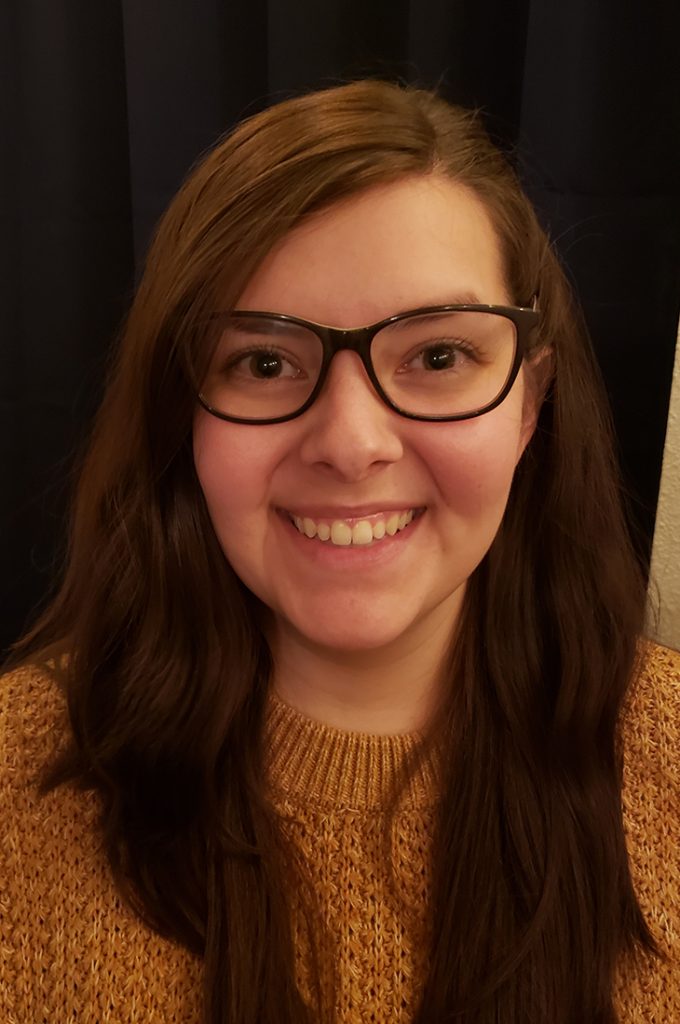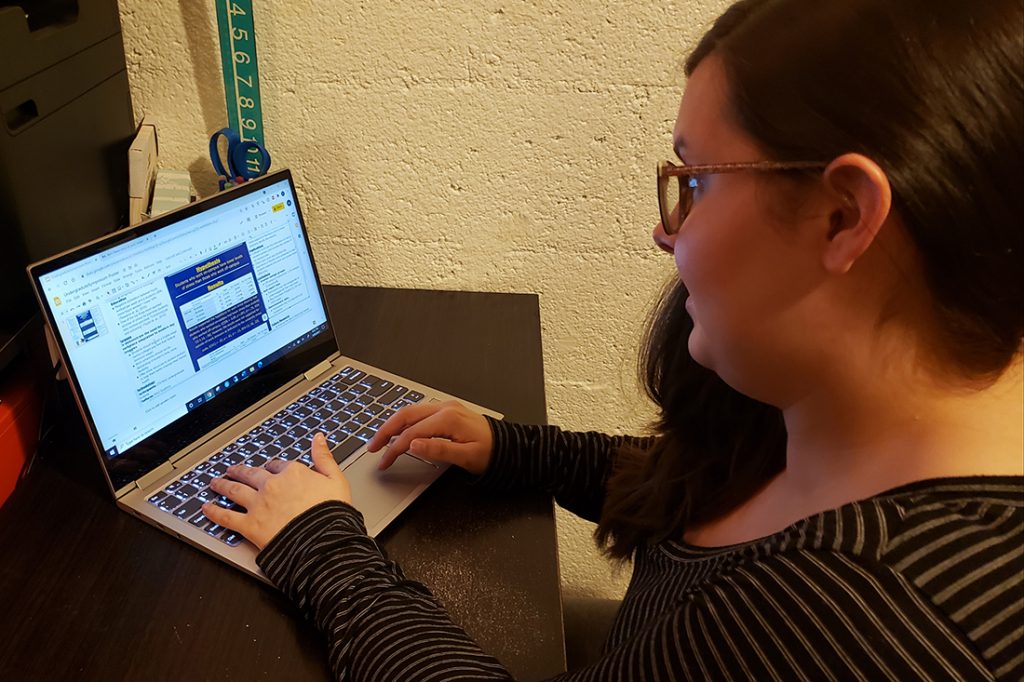Senior Hannah Bechtel knows how stressful college life can be.
In her four years at Northern Arizona University, Bechtel, who is studying psychological sciences and is a member of the Honors College, has juggled a full load of classes, working up to 30 hours a week, worrying about homework, paying bills, having a social life and, in her final year, doing it all during a global pandemic. So, as she looked around for opportunities for undergraduate research, she decided to pursue something she already knew about—student stress levels.
“This got me wondering how many students are in the same situation as I am,” she said. “I wanted to demonstrate to colleges and workplaces that working students should have more flexibility in terms of their schedules and resources available to them in order to help them maintain their motivation and to control their stress.”
This isn’t the first time she’s asked considered these ideas. Bechtel has always been interested in the study of mental disorders and what variety of factors contributes to the way people act the way they do. This led her to psychological sciences, and in her studies, she gravitated toward the role of psychology in the workplace.
For her Honors capstone project, Bechtel led her own research; she hypothesized that college students who had on-campus job would report lower rates of stress than those who worked off-campus. She used a 64-question survey, for which she got 279 responses, to gauge whether the shorter commute to and from work would affect stress rates. Bechtel used two scales to measure stress: the University Stress Scale, which measures a respondent’s stress based on academic-related variables; and the Job in General Scale, which measures a respondent’s stress based on workplace-related variables. Psychology senior lecturer Greg Busath advised Bechtel in her research.
The results were mixed; her hypothesis was supported by the Job in General Scale, but the University Stress Scale failed to support it. The results may have been skewed by the uneven sample size, which happened at least in part because the pandemic meant fewer students were on-campus and able to participate in the survey. Despite that, it provided good insight into her hypothesis and additional direction about questions subsequent researchers could ask.
“I believe more research like this needs to be done because helping those who are trying to educate themselves deserve to dedicate a

good amount of their time to their studies,” Bechtel said. “I hope my research helps to demonstrate how much different the college lifestyle is today as compared to previous decades. I think many do not understand just how different the times truly are, and I believe this unwillingness to understand the differences is what is preventing the culture from adapting.”
Busath agreed. Undergraduate students have a long history of balancing school and work, and the pandemic just amplified all of those challenges. Evidence demonstrating that on-campus work is less stressful than off-campus jobs can be a useful recruiting tool for employers and good information for students to have as they’re considering employment options. A second study after the pandemic likely would yield clearer results.
“I believe that if this finding is confirmed with a larger sample of on-campus employees, it would provide strong evidence to support recruiting students for on-campus jobs, and it can provide a lot of promising directions for future research about how to help students reduce their stress level while still meeting the challenges of work and school effectively,” he said.
The stress of college student life aside, Bechtel never shied away from additional research and learning opportunities. Although she has been in three of Busath’s classes, they connected in 2019 when she wanted to learn more about his research and talk about a research project he could lead. While working with undergraduate students is normal at NAU, Bechtel’s initiative stood out. Busath provided feedback and suggestions to improve the project based on his research experience, specifically related to what the Institutional Review Board and peer-reviewed journal editors would expect. But Bechtel handled the majority of the research components on her own.
“Her determination and dedication to being the lead increased her skills in leadership, organization and scientific thinking, which will significantly help her in her future endeavors,” Busath said. “I have come to know her much better and continue to be impressed by her work ethic, dependability, proactive personality, optimism and enthusiasm to effectively handle challenges and tasks that many undergraduates may not find intrinsically exciting.”
Bechtel will present her research at the Undergraduate Symposium, which will be held virtually April 12-16. She graduates this month with a degree in psychological sciences and an HR certificate.
Learn more about the Symposium and Expo, including how community members can participate.
Heidi Toth | NAU Communications
(928) 523-8737 | heidi.toth@nau.edu




